CONVERTIRSE EN RESIDENTE INTERIOR

CONVERTIRSE EN RESIDENTE INTERIOR
Para llevara a cabo como corresponde las obligaciones que tenemos en el o, uno debe aprender a ser una persona con información privilegiada para obtener la fuerza necesaria para enfrentar el estrés y la tensión del mundo.
De la misma manera que regulamos los hábitos de la comida y el sueño, deberíamos aprender a sentarnos tranquilos y relajarnos, a respirar y a concentrar la mente.
De esta manera, damos descanso a los músculos y al sistema nervioso, y regulamos los conductores de prana al establecer la armonía en la respiración.
Cuando hablamos de la mente y la concentración en un punto, es necesario recordar que aquietar la mente ayuda a tranquilizar el cuerpo y a regular la respiración.
El método de la meditación no se refiere sólo a la mente.
Es necesario entender el cuerpo y regular el comportamiento de la respiración antes de tratar de practicar la meditación.
La práctica de la meditación es una de las necesidades d la vid a moderna, y es en especial útil para la salud mental, sin la cual la salud física tiene menos importancia.
Cuando empezamos a trabajar con la mente, el cuerpo y la respiración nos distraen, y la mente se inquieta.
Mientras más queremos calamar la mente, más nerviosa se pone.
Es por eso que los estudiantes no experimentan la felicidad de la meditación y la contemplación.
La felicidad que se experimenta durante la meditación es una felicidad especial e inexplicable, sin comparación con las otras alegrías de este mundo.
Unos pocos afortunados experimentan el silencio.
Es bueno que la mente esté activa en el mundo exterior.
Pero durante la meditación, uno está en busca de algo que no se puede encontrar afuera.
Aquellos que no entienden el método de la meditación piensan que nos hacen pasivos.
En realidad, el arte de la meditación ayuda a establecer un control ordenado sobre la mente que nos permite estar activos y, al mismo tiempo, relajados y sin que nos afecten los estímulos externos.
La mente es el único instrumento para medir los objetos del mundo exterior; pero es necesario lograr que se aquiete para así poder ver si hay algo más allá.
Y hay algo más allá.
* * *
More Posts from Toivosworld and Others










FENCING
“La muerte me está guiñando un ojo.”
— Lirika inverza
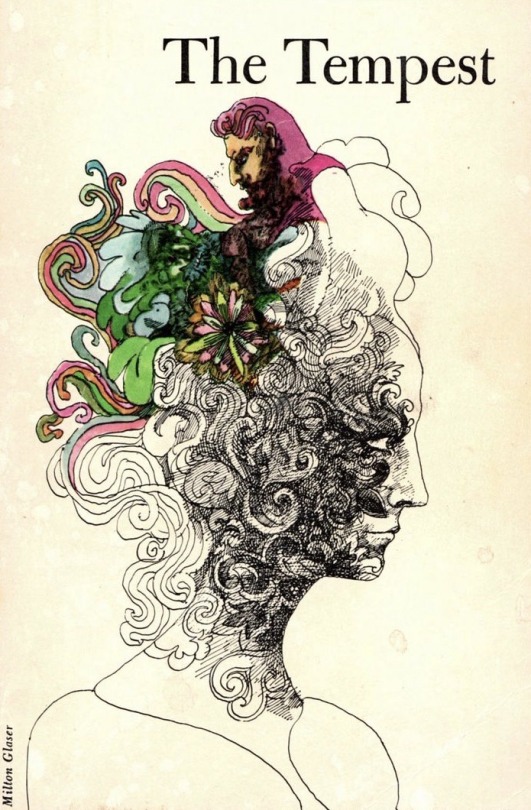

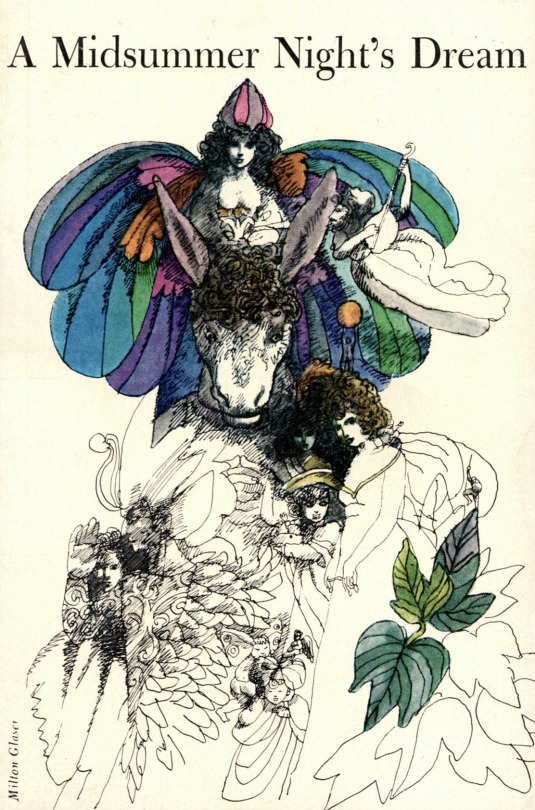

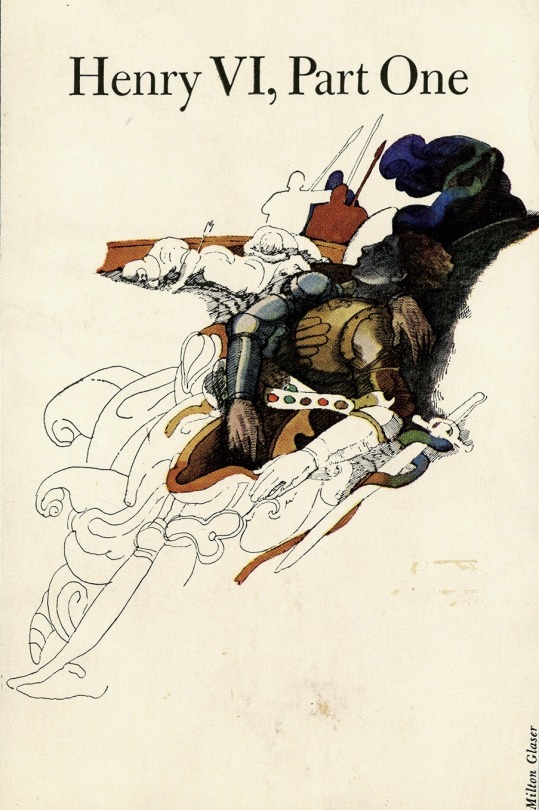

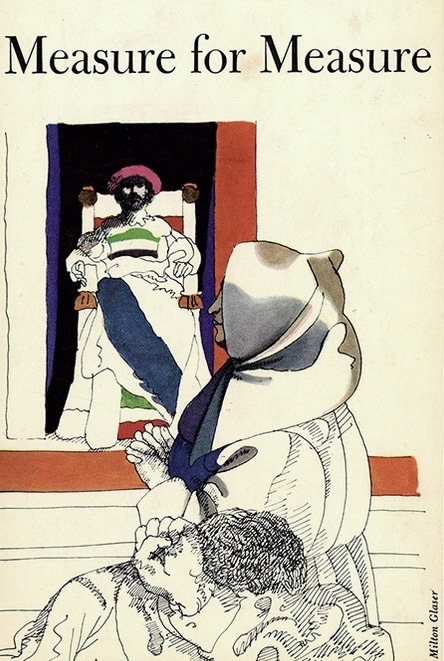
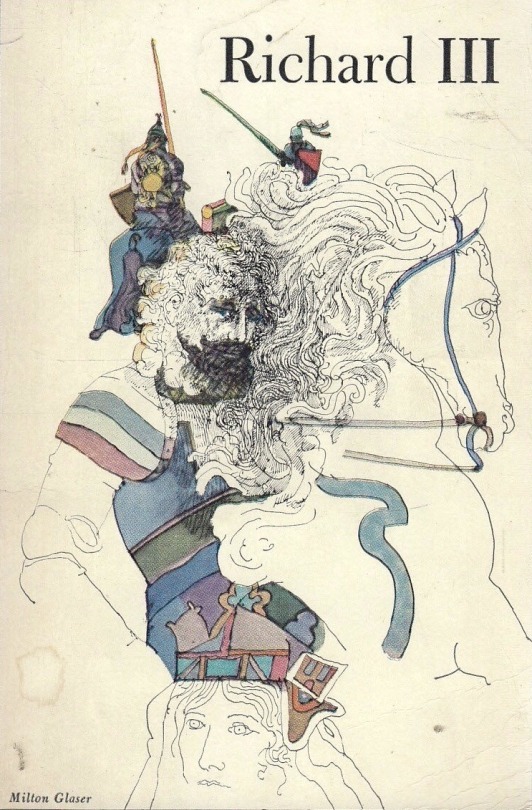
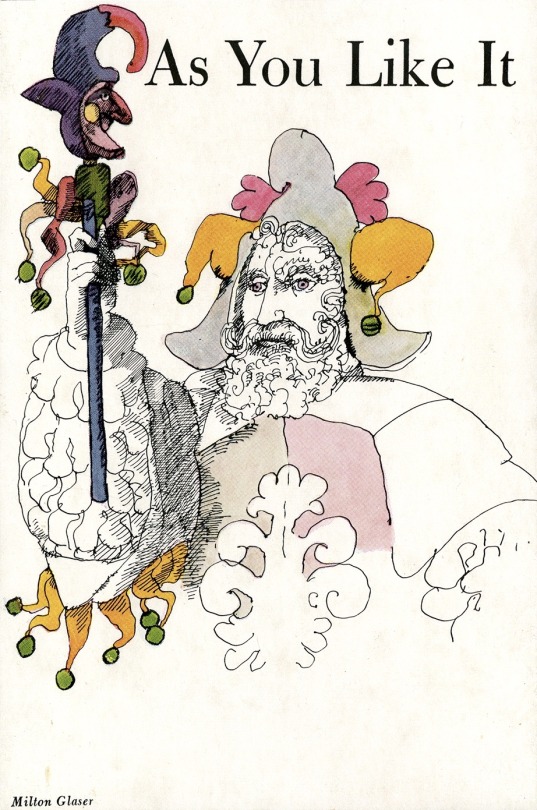

Shakespeare covers by Milton Glaser. 1963-4.
A simple spell to release stress

When we hold on to excess stress, it creates a blockage in our personal energy system. Imagine that your is body filled with tiny, invisible wires that carry energy from one point to the next. When you hold on to stress in a certain area, you tie a knot in the wires that keeps energy from flowing smoothly to the rest of your body. This can manifest as fatigue, lack of motivation, overwhelm, or other mental and physical symptoms. This spell is designed to untie those knots and let the energy flow freely.
This spell is very loosely adapted from the book Light Magic for Dark Times by Lisa Marie Basile, which I highly recommend for anyone looking to bring witchcraft into their self care practice or vice versa.
What you will need:
A piece of white paper
A pen or pencil
A bowl or cup of clean, fresh water (water from the tap is fine!)
(Optional) a few drops of lavender essential oil
Performing the spell:
Set aside some time when you can be alone and won’t be disturbed. If you like, set the mood by lighting candles, burning incense, or playing music. If you chose to include lavender oil, add it to the water now.
On the paper, write a detailed description of the situation that is causing you stress, and of how it makes you feel. Be as specific as possible. What emotions do you feel? Are there physical sensations associated with these emotions? Where in your body do you feel them? (If you are more comfortable drawing than writing, draw a picture that represents your situation and how it makes you feel.)
Keep writing/drawing until you run out of things to say. Get a second piece of paper if you need to. Don’t worry about making it pretty or even legible. What matters is that you get the emotions out and onto the page.
Fold the paper in half, folding it away from yourself; rotate it to the left and fold it again; rotate to the left again and fold one more time for a total of three folds. With each fold, repeat out loud or in your head, “I acknowledge these feelings and I let them go. I release.”
Submerge the folded paper in the bowl of water. Make sure it is completely covered. Watch it soak through, and watch the ink bleed from the paper.
Say, “Spirits of water, keepers of emotion and the subconscious, spirits of healing, help me to cleanse and release. Help me restore my energy.”
Allow the envelope to soak in the water for at least an hour before disposing of it.

27/03/2019 - A quiet library session after the longest day yesterday, drinking herbal iced tea and listening to chill music on my study playlist
¡Y si Dios lo quiere, sólo te amaré mejor después de la muerte!
Un tranvía llamado deseo

Thomas Moore before and after he was forced to attend the Regina Indian Residential School in Saskatchewan, Canada in 1874. His hair was cut, his clothes were changed and he was forbidden from speaking his native language. Thomas was stripped of his indigenous identity along with thousands of other children stolen from reservations and forced to attend these schools.

Tragedias de Shakespeare.
“Tengo miedo. Miedo de olvidar cómo sonaba tu voz. Y cuál era el color de tus ojos. Tengo miedo de olvidar cómo era tu rostro. Y las arrugas que formaban tus mejillas cada vez que sonreías. Tengo miedo de olvidar que te quiero. Y de que nuestros recuerdos se desvanezcan de mi mente. Tengo miedo de olvidar tus sabios consejos. Y cómo me defendías frente a mamá cuando hacía alguna travesura. Tengo miedo de olvidar lo bien que tocabas la guitarra. Y de cómo te esforzabas en enseñarme a ser mejor persona. Tengo miedo de que el tiempo te lleve por completo. Tengo miedo de olvidarte.”
— Recovecos de mi alma
-
 costadeamapola liked this · 3 years ago
costadeamapola liked this · 3 years ago -
 chamigonz liked this · 3 years ago
chamigonz liked this · 3 years ago -
 verymuffinjudgepainter liked this · 3 years ago
verymuffinjudgepainter liked this · 3 years ago -
 saraczcgtz liked this · 4 years ago
saraczcgtz liked this · 4 years ago -
 cuauclence liked this · 4 years ago
cuauclence liked this · 4 years ago -
 eduandreeees liked this · 4 years ago
eduandreeees liked this · 4 years ago -
 bigzzzoe17 liked this · 4 years ago
bigzzzoe17 liked this · 4 years ago -
 oparaiso reblogged this · 4 years ago
oparaiso reblogged this · 4 years ago -
 mystic-space1 reblogged this · 4 years ago
mystic-space1 reblogged this · 4 years ago -
 nightcuervo liked this · 4 years ago
nightcuervo liked this · 4 years ago -
 antoniaaburto liked this · 4 years ago
antoniaaburto liked this · 4 years ago -
 vodka-cristal-ice liked this · 4 years ago
vodka-cristal-ice liked this · 4 years ago -
 blckggiss liked this · 4 years ago
blckggiss liked this · 4 years ago -
 calma-para-el-alma reblogged this · 4 years ago
calma-para-el-alma reblogged this · 4 years ago -
 calma-para-el-alma liked this · 4 years ago
calma-para-el-alma liked this · 4 years ago -
 sbrnz reblogged this · 4 years ago
sbrnz reblogged this · 4 years ago -
 danielgatoz liked this · 4 years ago
danielgatoz liked this · 4 years ago -
 mermaid-sashimi-s liked this · 4 years ago
mermaid-sashimi-s liked this · 4 years ago -
 motomimabyrosalia liked this · 4 years ago
motomimabyrosalia liked this · 4 years ago -
 rominuchiz liked this · 4 years ago
rominuchiz liked this · 4 years ago -
 mizhharte liked this · 4 years ago
mizhharte liked this · 4 years ago -
 debryaan9 liked this · 4 years ago
debryaan9 liked this · 4 years ago -
 toivosworld reblogged this · 4 years ago
toivosworld reblogged this · 4 years ago -
 toivosworld liked this · 4 years ago
toivosworld liked this · 4 years ago -
 mxxngs liked this · 4 years ago
mxxngs liked this · 4 years ago -
 emiliaechevarria liked this · 4 years ago
emiliaechevarria liked this · 4 years ago -
 elveranodekikujiro liked this · 4 years ago
elveranodekikujiro liked this · 4 years ago -
 itzamedinauwu liked this · 4 years ago
itzamedinauwu liked this · 4 years ago -
 amochis liked this · 4 years ago
amochis liked this · 4 years ago -
 bittersweet-scape liked this · 4 years ago
bittersweet-scape liked this · 4 years ago -
 besitosdepapel liked this · 4 years ago
besitosdepapel liked this · 4 years ago -
 ravencurwen-blog liked this · 4 years ago
ravencurwen-blog liked this · 4 years ago -
 dennisglemus liked this · 4 years ago
dennisglemus liked this · 4 years ago -
 jessiecamacho liked this · 4 years ago
jessiecamacho liked this · 4 years ago -
 obnubiladita liked this · 4 years ago
obnubiladita liked this · 4 years ago -
 inherteyvacio liked this · 4 years ago
inherteyvacio liked this · 4 years ago -
 laikuet16 reblogged this · 5 years ago
laikuet16 reblogged this · 5 years ago -
 laikuet16 liked this · 5 years ago
laikuet16 liked this · 5 years ago -
 bastianvalde liked this · 5 years ago
bastianvalde liked this · 5 years ago -
 angeljimenezyoga liked this · 5 years ago
angeljimenezyoga liked this · 5 years ago -
 maftalina liked this · 5 years ago
maftalina liked this · 5 years ago -
 goolmedo liked this · 5 years ago
goolmedo liked this · 5 years ago -
 profoundbatdreambandit liked this · 5 years ago
profoundbatdreambandit liked this · 5 years ago -
 pequegirlsblog reblogged this · 5 years ago
pequegirlsblog reblogged this · 5 years ago -
 pequegirlsblog liked this · 5 years ago
pequegirlsblog liked this · 5 years ago -
 zaleth25 reblogged this · 5 years ago
zaleth25 reblogged this · 5 years ago
